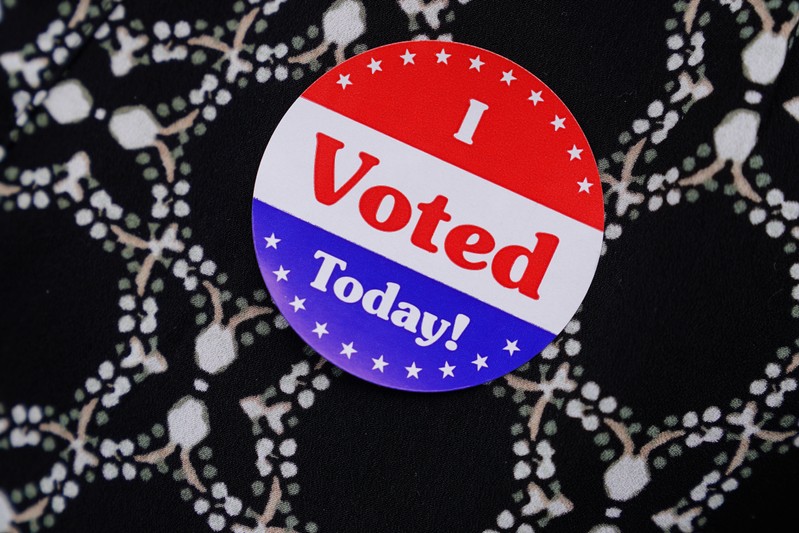
A woman wears an “I Voted Today” sticker at a polling place during the midterm election in Ponte Vedra Beach, Florida, U.S., November 6, 2018. REUTERS/Carlo Allegri
November 7, 2018
By Dan Whitcomb
(Reuters) – Florida voters on Tuesday approved a state constitutional amendment restoring voting rights to some 1.5 million people with felony convictions, ending a system that activists said disproportionately affected poor and black residents.
The passage of Amendment Four with the support of 64 percent of voters could reverberate beyond Florida into the 2020 presidential election because of the outsize role the battleground state often plays in deciding close national elections.
“Voters in Florida have endorsed a historic advance in democracy for the United States by adopting Amendment 4. Florida’s lifetime ban on voting by people with a criminal record created the country’s largest disenfranchised population,” The Sentencing Project criminal justice reform group said in a statement.
Crowds who were gathered at an election night rally for Andrew Gillum, the Democratic nominee for Florida governor, erupted in cheers when cable news networks reported the ballot measure had crossed the 60 percent threshold it needed to pass.
All U.S. states except for Maine and Vermont bar felons from voting while they are incarcerated, but most restore that right when the inmate is released or following a period of parole or probation.
Florida was among a minority of states that required additional waiting time or extra steps for felons to regain their voting rights.
In February, a federal judge ruled the state’s policy requiring felons to petition the government to have their voting rights restored was unconstitutional because it was lengthy, arbitrary and forced them to “kow-tow” to the whims of state politicians.
A spokesman for Republican Governor Rick Scott said at the time that Florida’s process for restoring voting rights to felons had been in place for decades and adhered to U.S. Supreme Court precedent.
Florida voters have regularly swung between supporting Republican and Democratic presidential candidates over the past few decades. Only once in the past 50 years has the candidate who won Florida not gone to the White House.
(Reporting by Dan Whitcomb in Los Angeles; Editing by Alistair Bell, Jonathan Oatis and Peter Cooney)

